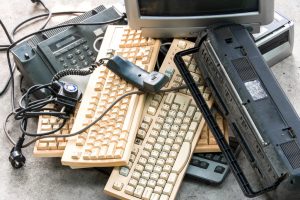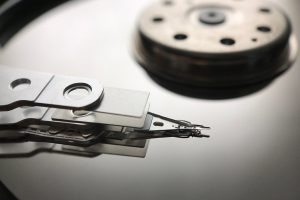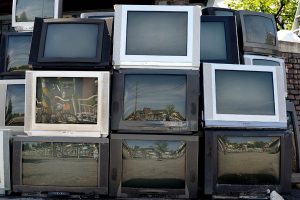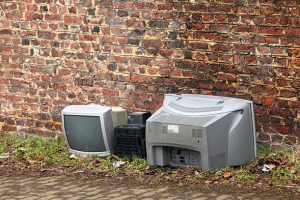 India opened the door last week to imports of products that will be repaired and re-exported out the country, a move that could have significant implications for the electronics reuse sector.
India opened the door last week to imports of products that will be repaired and re-exported out the country, a move that could have significant implications for the electronics reuse sector.

 Colin Staub was a reporter and associate editor at Resource Recycling until August 2025.
Colin Staub was a reporter and associate editor at Resource Recycling until August 2025. India opened the door last week to imports of products that will be repaired and re-exported out the country, a move that could have significant implications for the electronics reuse sector.
India opened the door last week to imports of products that will be repaired and re-exported out the country, a move that could have significant implications for the electronics reuse sector.

An appeals court has ruled against Vizio in a case over how Connecticut’s state program calculates the recycling fee it charges manufacturers.
 Research partially funded by a prominent IT asset disposition company led to the development of a non-toxic method for recycling e-plastics.
Research partially funded by a prominent IT asset disposition company led to the development of a non-toxic method for recycling e-plastics.
 A handful of United Nations entities have announced their collaboration to improve e-scrap management.
A handful of United Nations entities have announced their collaboration to improve e-scrap management.
 The 2018 spending bill approved by lawmakers and signed by the president last week contains good news for the U.S. EPA and its recycling-related programs: The agency avoided significant budget cuts that were proposed last year.
The 2018 spending bill approved by lawmakers and signed by the president last week contains good news for the U.S. EPA and its recycling-related programs: The agency avoided significant budget cuts that were proposed last year.
 Testimony from a data security industry group appears to have spurred government interest in strengthening regulations preventing data breaches.
Testimony from a data security industry group appears to have spurred government interest in strengthening regulations preventing data breaches.

Linda Li, chief strategy officer of LTG, speaking at the E-Scrap Conference in 2017
A global asset management company is rolling out a new consolidated end-of-life service platform for a major telecommunications company in Europe. Li Tong Group (LTG) intends to expand the service offering to U.S. clients in the future.
 Samsung’s latest smartphone, the Galaxy S9, was released this month. As some groups scrutinize the device, the manufacturer has announced service upgrades to its authorized repair locations.
Samsung’s latest smartphone, the Galaxy S9, was released this month. As some groups scrutinize the device, the manufacturer has announced service upgrades to its authorized repair locations.
 Processors in California will soon receive reimbursement rates that vary based on the type of device recycled. Regulators this week approved a variable payment rate system in response to the changing end-of-life electronics stream.
Processors in California will soon receive reimbursement rates that vary based on the type of device recycled. Regulators this week approved a variable payment rate system in response to the changing end-of-life electronics stream.
Continue Reading
 Despite having a landfill ban in place, problems have plagued electronics recycling in Colorado for years, and stakeholders are working to find a solution.
Despite having a landfill ban in place, problems have plagued electronics recycling in Colorado for years, and stakeholders are working to find a solution.
